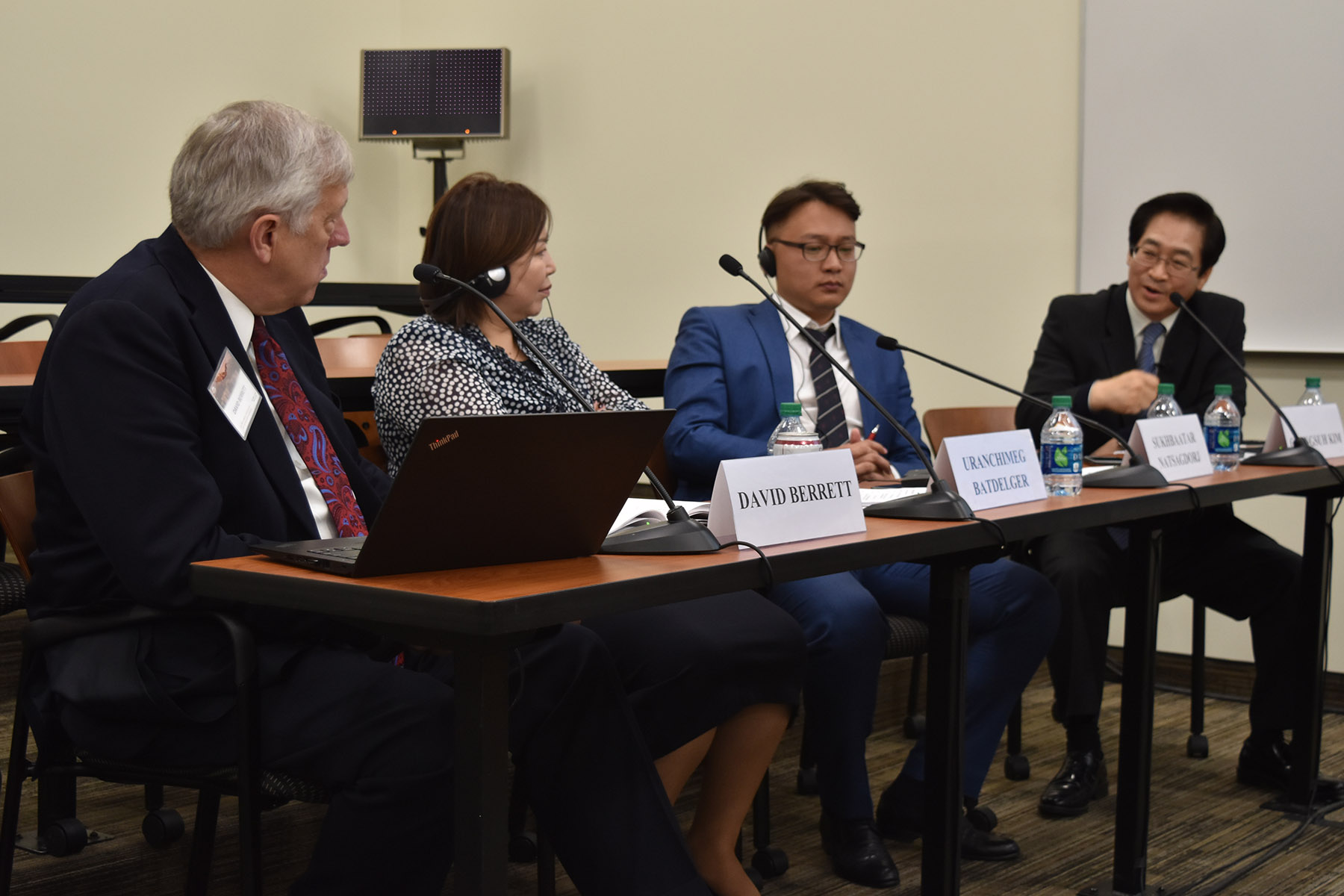Symposium 2017: Mongolia and Republic of Korea

by Shaun Belliston, BYU Law Student and Symposium Volunteer
The Republic of Korea and Mongolia were the focus of a breakout session held on Tuesday October 3, 2017. The session was moderated by David Berrett, Area Legal Counsel for The Church of Jesus Christ of Latter-day Saints. Mr. Berrett welcomed the audience and introduced the delegates from the Republic of Korea and Mongolia. The delegates consisted of Chongsuh Kim of the Republic of Korea, and Uranchimeg Batdelger and Sukhbaatar Natsagdorj of Mongolia. The session was translated into many languages.
The first speaker of the session was Chongsuh Kim, professor of Religious Studies at Seoul National University. Professor Kim has served as Vice President of Seoul National University and has been a consultant for the Korean Ministry of Culture regarding issues of interreligious conflicts and the constitution. Professor Kim focused his remarks on the characteristics of religious pluralism in Korea, discussing the contemporary relationships between Christians, Buddhists, Shamanists, Confucianists, and non-religious affiliates. Professor Kim also discussed various challenges that the Republic of Korea has faced due to its religious pluralism, including religious indoctrination in schools and religious extremism. Despite its challenges, the Republic of Korea has arrived at a state of religious harmony by creating a new hybrid culture based on mutual respect and acceptance.
The second speaker of the session was Sukhbaatar Natsagdorj, Director of the Financial Planning Division in the General Office of Labor and Social Welfare Services in Mongolia. Mr. Natsagdorj opened his remarks with a brief introduction and history of Mongolia, focusing on its shamanistic origins. Eventually, Mr. Natsagdorj said, these shamanistic roots gradually gave way to Tibetan Buddhism which now makes up 53% of the population. Mr. Natsagdorj emphasized how important religion is to the Mongolian people and the Mongolian government’s belief that all religions can co-exist peacefully. The Mongolian government is working towards this end, Mr. Natsagdorj concluded.
Mr. Berrett then opened the session up for Q&A. At the close of the Q&A, Mr. Berrett thanked the speakers for their dedication and scholarship and for their time in addressing the symposium.